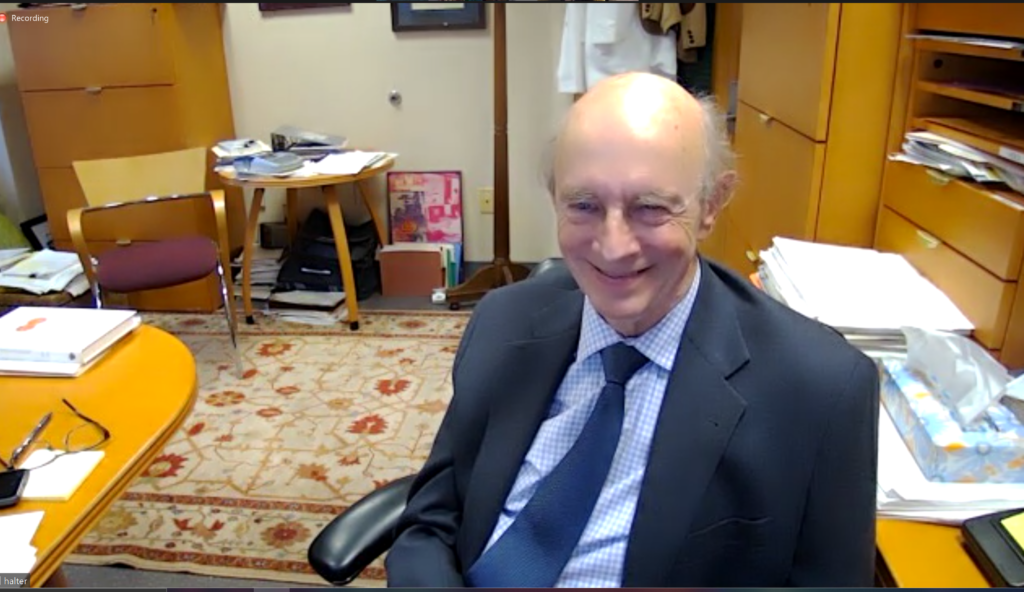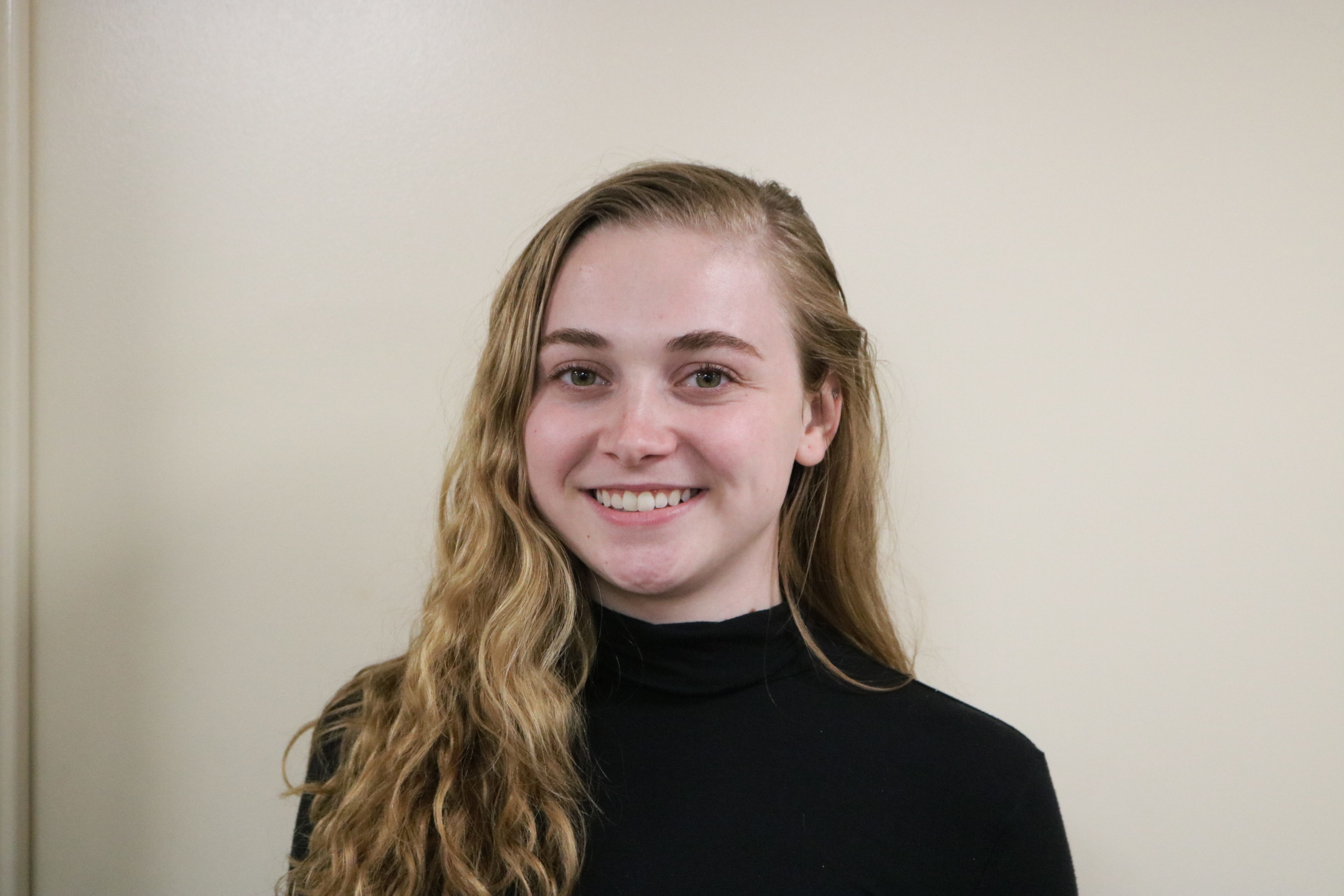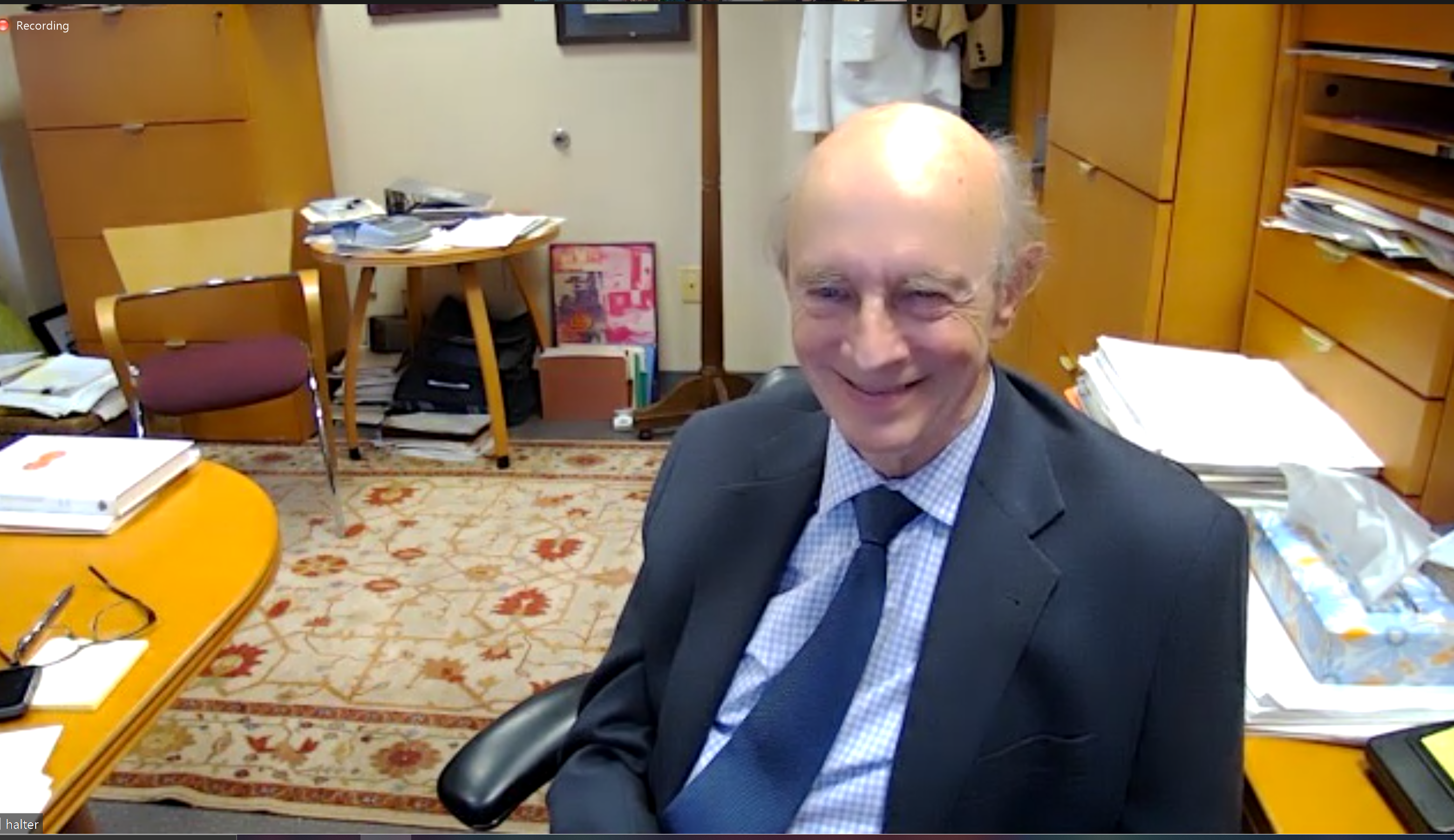UR alum Harvey J. Alter ‘56 ‘60 M.D. recently won the 2020 Nobel Prize in Medicine for his contributions to the discovery and treatment of hepatitis C.
Alter, who attended UR from 1952 to 1956 as an undergrad before staying for his medical school and residency, reminisced on his college days in the ‘50s in an interview with the Campus Times.
After spending almost a decade in Rochester, Alter, who lived in Burton and Lovejoy as an undergrad, had the same off-campus ventures as students today: Highland Park, “greasy spoon” late-night restaurants, and concerts at Eastman.
Alter’s biggest extracurricular activity was working for the CT, where he was managing editor, among other positions. Just as the campuses combined, the men’s and women’s papers joined forces in the ‘50s, merging The Campus and Tower Times into the paper we know and love: the Campus Times.
When asked about his time working on the weekly paper, he said, “You always wonder whether you’re going to make it on time. And you couldn’t just change things at the last minute […] what you said was what you said. It was kinda like having an extra exam every week. You know, that I had to study for.”
He witnessed historic changes to UR during his time. Until 1955, there were two campuses: a much smaller River Campus for men, and one on Prince Street, by today’s Memorial Art Gallery, for women. Near the end of Alter’s undergrad years, the two campuses merged, and women moved into the recently-built Susan B. Anthony Residence Hall.
“That was a transformative time — it was totally different once the women moved onto the same campus.” Alter said. “We became more polite, better dressed, and happier. It really, really made it a different school and a much better school.”
Although changes come and go, one thing has remained constant for UR students: freezing Rochester winters.
“It was bitter cold all of the time, and we had the tunnels — which helped,” Alter said, “but the walk from Burton dorm to classrooms was very chilly […] When the weather was the best […] we were sent home.”
Alter wasn’t done with winter after four years; he also attended medical school at Strong Memorial Hospital, helped in part by his attendance at UR as an undergrad.
A distinguished scientist emeritus at the National Institute of Health (NIH), Alter only had praises to sing for his two-time alma mater, which he called a “fantastic medical school” where “students were given a lot of responsibility.”
“There’s a hierarchy in where you go to school. [It] determines where you intern, and where you intern determines where your residency is. So the better place you’re at, the better the next place you can go to […] So Rochester was the stepping stone for my getting [to NIH].”
Alter stayed in Rochester after his medical school graduation as an intern, then a medical resident, both at Strong Hospital. He’d hoped to go into private practice after his residency, but the Cold War had other plans.
In 1961, Alter, then only partly done with his first-year residency, got a letter in the mail from the U.S. government.
“It started out, ‘Greetings. Uncle Sam wants you’ kind of thing.” The letter instructed him to report to Fort Dix in New Jersey. This came as a surprise, because usually first-year residents in the middle of their training don’t get drafted, but the U.S. was currently embroiled in the 1961 Berlin Crisis.After he got the news, he made some “frantic” calls, and learned that he had a way out. If he could get commissioned as a researcher in the public health service at NIH, that position would take precedence over the draft. He had already put in his application to NIH, but he didn’t know the results yet.
Luckily, Alter got the commission in time and traveled to NIH in Maryland just two days before he had to report to New Jersey. As Alter put it, the draft letter transformed his life, and eventually led to his Nobel Prize-winning research.
“If I hadn’t gotten drafted, I might have still been in Rochester right now,” Alter explained, laughing. “[My life] might have been fine otherwise. But it definitely would have been different.”
Instead, he wound up as a researcher at NIH, where he got involved with the study that discovered a protein, later dubbed the Australia antigen, that coats the surface of the hepatitis B virus. This research paved the way for isolating hepatitis B and preventing post-transfusion transmissions of the virus.
After his promising start in medical research at NIH, he moved to Seattle to complete his second-year residency, before going to Georgetown University for a hematology fellowship, and then as a faculty member.
During that time, Alter actually applied for a position in internal medicine, but he didn’t get it. What was a disappointment actually turned out to be fortuitous, because In 1970, NIH called him back to pick up his work in hepatitis and blood transfusions. As Alter tells it, that led to the research that won him the Nobel Prize — the discovery of the hepatitis C virus.
“It wasn’t hepatitis A, which was infectious hepatitis, or B, which was called serum hepatitis,” Alter said. “So, in a brilliant deduction, we said if it’s not A and it’s not B, we’ll call it non-A non-B.”
That got the ball rolling for Alter and his team. Over the next decade, despite never seeing the virus or having a test for it, they were able to interfere with its transmission, to see what killed or didn’t kill it. They also found that patients with what was then called non-A, non-B hepatitis would sometimes go on to get liver fibrosis, liver cancer, and other serious health issues.
Then, Michael Houghton, also awarded this year’s Nobel Prize in Medicine, cloned the hepatitis C virus and developed an assay that would test whether the virus had been present in an individual’s blood. Alter and his team tested all their non-A, non-B cases, and found that every patient didn’t have antibodies for this new virus before the transfusion, and did have antibodies after the transfusion.
“So non-A non-B was the same as C,” Alter explained.
Their work led to a dramatic decrease in post-transfusion hepatitis, which had been 30% in 1970, when Alter came back to NIH, and was down to virtually zero in 1997.
“Post-transfusion hepatitis has disappeared,” he said. “What’s gratifying to me is, I think I saw the first patient that was called non-A non-B hepatitis. And now I’m seeing all these patients being cured.”
The news that he and his colleagues had won a Nobel prize came as a shock. “About four years ago, somebody told me they were writing a letter on my behalf,” Alter said. “That year, I kind of watched to see if anything happened and it didn’t […] So I just forgot about it.”
When Alter got the call about his Nobel Prize at 4:50 in the morning, he was dumbfounded. Thinking that it was spam callers, he “was ready to call them out for calling in the middle of the night,” Alter recalled. “But then he said, ‘This is so-and-so from Stockholm.’ And then I got stopped in my tracks.”
Alter joked that the glow wore off quickly. “The elation is kind of short-lived, but emails go on forever.”
He also attributes part of his success in research to the way NIH operated in the 20th century.
“The granting mechanism wants you to already have […] some pretty substantial results before they’ll even give you the money to continue your work,” Alter said. “Maybe 12 percent of people who apply for grants, get funded. And it drives a lot of young people out of science, including my son.”
When Alter started at NIH, he had set funding from his department. “We had much less oversight and much more freedom to just pursue things. And there has to be room for that, because you could think of a lot of the great discoveries, they really come from a chance finding,” he said. “Hepatitis B was just a chance finding […] We didn’t think we were going to find a new virus. We just thought we were going to find new ways to make the blood purer.”
To students currently looking to get their foot in the door of a medical profession, Alter suggests first finding a passion, and then a mentor.
“You have to work on something that excites you a little bit,” he said. “Find a field you like. Find a mentor who’s known in that field. Cut your teeth in that environment. Then branch out.”
Now 85 years old, Alter still reminisces about his college years. “I’d go back to school in a heartbeat […] College was where you really grow up. I changed, I think, dramatically in my first year of college. The lessons I learned just kind of stayed with me. And if you want to trade places, I will do that,” he joked.
Alter also warned students against trying to be a “jack-of-all-trades,” and encouraged them to specialize. “Try to be the person that other people either want to come to you for advice, or want you to be their collaborator […] It’s very hard to do anything just by yourself these days, you gotta really work with others if you want to delve into something really deeply.”



